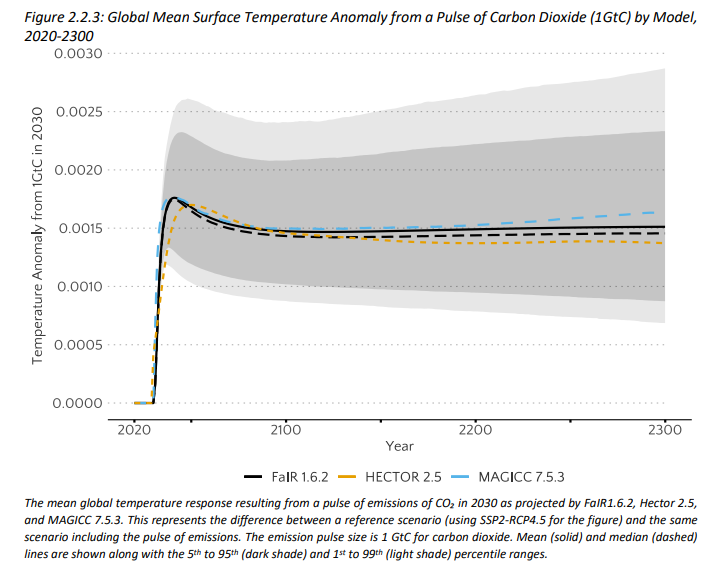I wrote an article about the policy irrelevance of the social cost of carbon in the hopes of prompting an uncomfortable conversation about the future use of the metric.
So I was excited to see that @Revkin asked @CassSunstein about my critique 🧵
revkin.substack.com/p/a-fresh-look…
So I was excited to see that @Revkin asked @CassSunstein about my critique 🧵
revkin.substack.com/p/a-fresh-look…
I'm a fan of both of them, so unsurprisingly it’s a great conversation.
Sunstein brushes aside the SCC critique. He says the alternative is to give policymakers no info on climate policy stringency, i.e., it’s either we stick with the SCC or we fly blind [I’m paraphrasing]
Sunstein brushes aside the SCC critique. He says the alternative is to give policymakers no info on climate policy stringency, i.e., it’s either we stick with the SCC or we fly blind [I’m paraphrasing]
He's giving the instinctual response of economists to SCC critiques, and I get it. I used to say it myself. But I’ve come to realize that its validity rests on 2 problematic assumptions.
First, it assumes that SCC estimates convey *some* useful info to policymakers about climate policy stringency. So, they are estimating something coherent (like an uncertain most likely estimate, or a lower bound estimate, or even a bad estimate with meaningful error bars).
Second, it assumes that the alternative to SCC approach is to totally discard the rich information scholars have developed on climate effects, damages, emissions pathways, intergenerational transfers, etc. And instead picking arbitrary numbers (that implicitly value CO2).
If these two assumptions were true, then Sunstein’s argument follows directly: the SCC provides policymakers with *some* valuable info, and something is better than nothing.
But I don't think either assumption is true.
But I don't think either assumption is true.
I explain in my recent article that estimating SCCs entails making methodological choices that are obviously wrong, but necessary to generate specific numbers (or ranges). That process produces results that have no coherent interpretation.
energypolicy.columbia.edu/the-social-cos…
energypolicy.columbia.edu/the-social-cos…

On the 2nd assumption: if we pull together a group of leading experts across relevant disciplines with the task of assessing climate risks and providing a science-based judgments on climate policy stringency, they will do vastly better than an arbitrarily-picked target.
So, I’ve come to realize that the situation is almost exactly the opposite of the instinctual economist response. Real-world SCC estimates convey roughly nothing to policymakers, whereas an alternative approach could provide at least something useful.
Of course, these aren't new insights at all. Scholars like Martin Weitzman made similar SCC critiques decades ago. The "alternative" I'm describing is basically what the IPCC is designed to do.
But, due largely to historical context, US regulatory policy has stuck with the SCC.
But, due largely to historical context, US regulatory policy has stuck with the SCC.
Reasonable people can disagree with all this. But I’m still hoping we take advantage of this dark moment in the wilderness to have some worthwhile and overdo conversations like this one. /end
cc @lydiadepillis in case of interest
• • •
Missing some Tweet in this thread? You can try to
force a refresh








